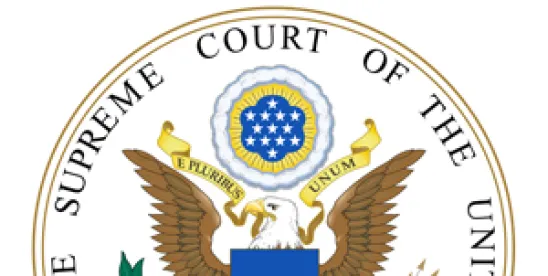In November 2018, the U.S. Supreme Court had granted certiorari in PDR Network, LLC v. Carlton & Harris Chiropractic, Inc., to decide whether the Hobbs Act required the district court to accept the Federal Communications Commission's (FCC) interpretation of the Telephone Communication Protection Act's (TCPA) prohibition on unsolicited fax advertisements.
Although it vacated the decision of the U.S. Court of Appeals for the Fourth Circuit that held the district court was bound by the FCC's interpretation, the Supreme Court did not answer the question presented and remanded the case for the Fourth Circuit to consider two "preliminary issues" upon whose resolution "the answer [to such question] may depend." The opinion of the Court was written by Justice Breyer, with all of the Justices concurring in the judgment. The question left unanswered by the Supreme Court could take on increased significance should the FCC, in its anticipated ruling, adopt a broad reading of what constitutes an automatic telephone dialing system (ATDS) under the TCPA.
The Hobbs Act provides a mechanism for judicial review of certain "final orders" of the FCC, including FCC final TCPA orders. An aggrieved party has 60 days to challenge such an order by filing a petition in the court of appeals for the judicial circuit where the petitioner resides or has its principal office or in the U.S. Court of Appeals for the District of Columbia Circuit. Under the Hobbs Act, such courts have exclusive jurisdiction to enjoin, set aside, suspend (in whole or in part), or to determine the validity of the orders to which the Act applies.
The petitioner in PDR Network sent a fax in 2013 to a West Virginia chiropractor offering a free copy of the Physicians' Desk Reference. The chiropractor declined the offer and sued PDR in West Virginia federal court, alleging that PDR had violated the TCPA by sending it an unsolicited fax advertisement. PDR moved to dismiss, arguing that the fax was not an unsolicited advertisement because it offered the desk reference for free rather than for purchase. The chiropractor disagreed, arguing that the fax was an unsolicited advertisement because a 2006 FCC Order interpreted the term to include "facsimile messages that promote goods or services even at no cost."
Applying step one of a Chevron deference analysis, the district court found that the TCPA's definition of "unsolicited advertisement" was unambiguous, and therefore it was not required to defer to the FCC's interpretation. Concluding that the TCPA only prohibited faxes with a commercial aim, it granted PDR's motion to dismiss. The Fourth Circuit reversed, ruling that the Hobbs Act precluded the district court from ″even reaching the step-one question [of Chevron]″ and required it to defer to the FCC rule.
The Supreme Court vacated the Fourth Circuit judgment and remanded the case for analysis of two "preliminary issues" that, depending on their resolution, could make it unnecessary to reach the question the Court granted certiorari to resolve. The first issue is whether the FCC's 2006 Order is an "interpretive rule" rather than a "legislative rule." If an interpretive rule, the Order may not be binding on a district court under the Hobbs Act, and PDR could challenge the FCC's interpretation in the district court. The second issue is whether PDR had a prior and adequate opportunity in 2006 to seek review of the Order in a court of appeals pursuant to the Hobb's Act exclusive-jurisdiction provision. If it did not, then PDR could challenge the Order even if it is deemed a "legislative rule."
In a separate opinion concurring in the judgment joined by Justices Thomas, Alito, and Gorsuch, Justice Kavanaugh wrote that he would decide the question presented and "conclude that the Hobbs Act does not bar a defendant in an enforcement action from arguing that the agency's interpretation of a statute is wrong." Justice Kavanaugh asserted that while the Hobbs Act provides for "facial, pre-enforcement challenges," it does not preclude judicial review of an agency's statutory interpretation in an enforcement action, such as the lawsuit filed against PDR.
By leaving open the possibility that a defendant in other unsolicited advertisement cases could successfully challenge the FCC's 2006 Order, it is uncertain whether the Supreme Court's decision will deter the filing of new TCPA litigation regarding unsolicited advertisements. The FCC currently is revisiting the TCPA's ATDS definition in light of the D.C. Circuit's decision in ACA International v. FCC. Should the FCC follow the Ninth Circuit in adopting a broad reading of the ATDS definition, the Supreme Court's decision would create uncertainty about the extent to which a defendant in a TCPA lawsuit based on such broad reading would be precluded by the Hobbs Act from challenging the FCC's interpretation under Chevron.








 />i
/>i

